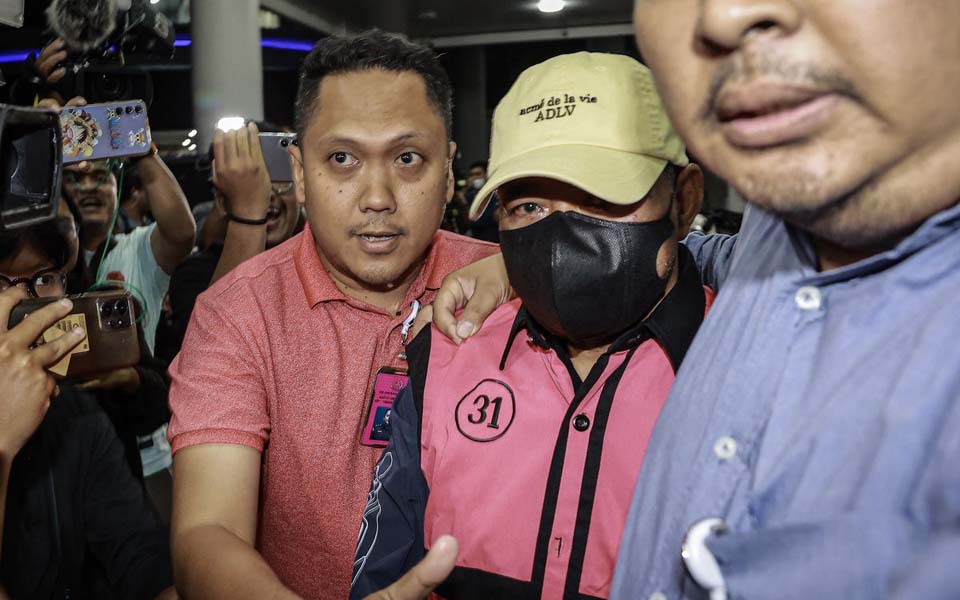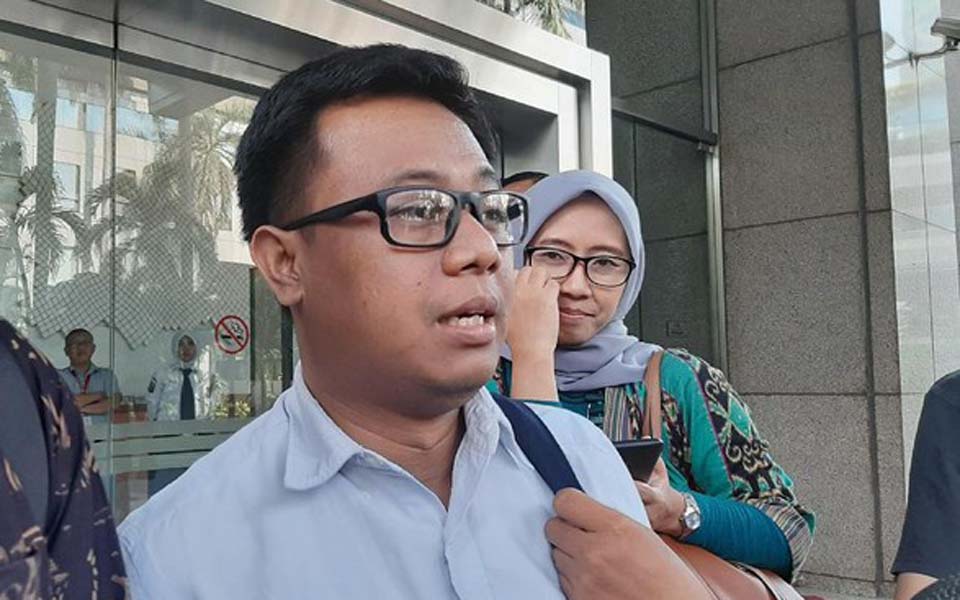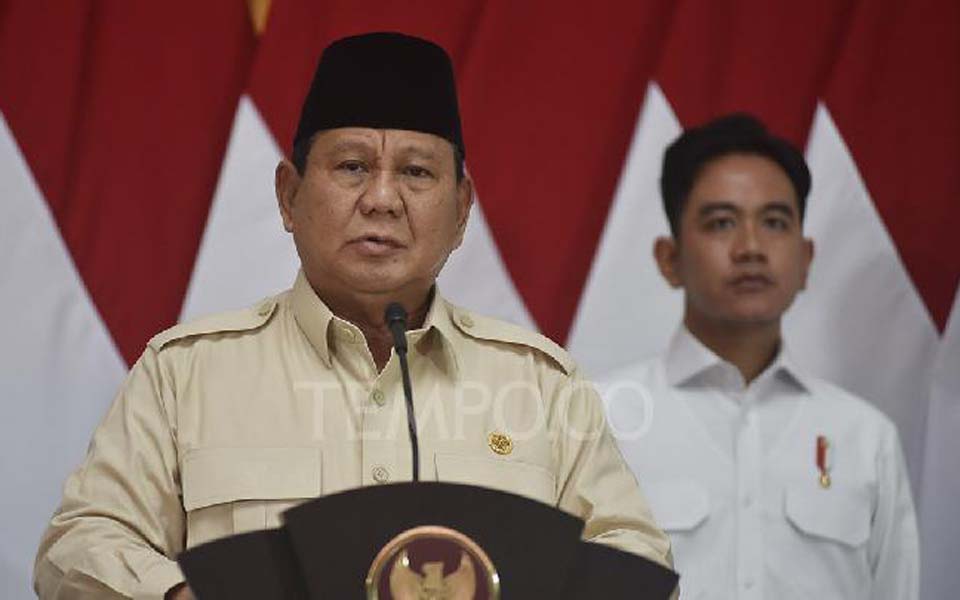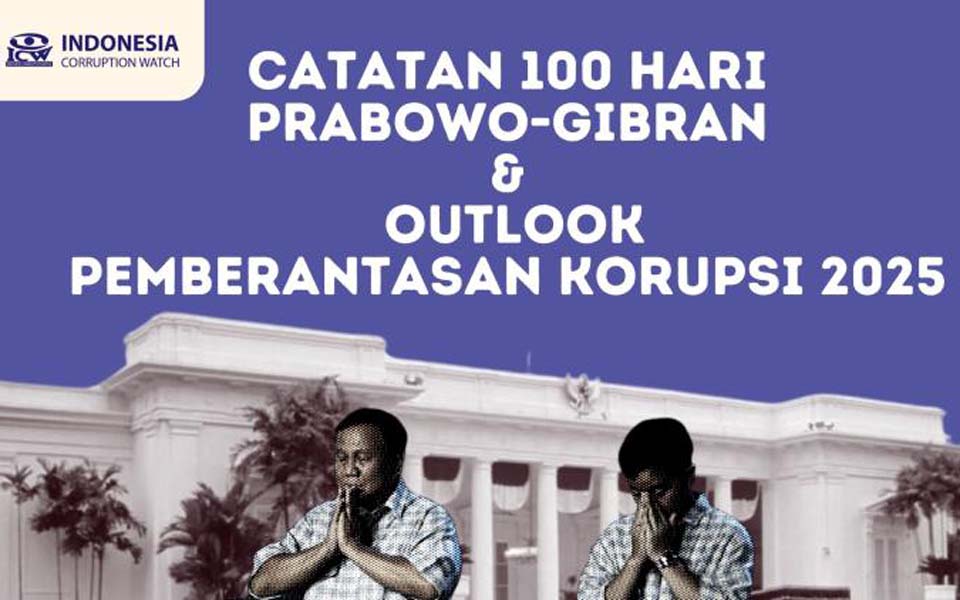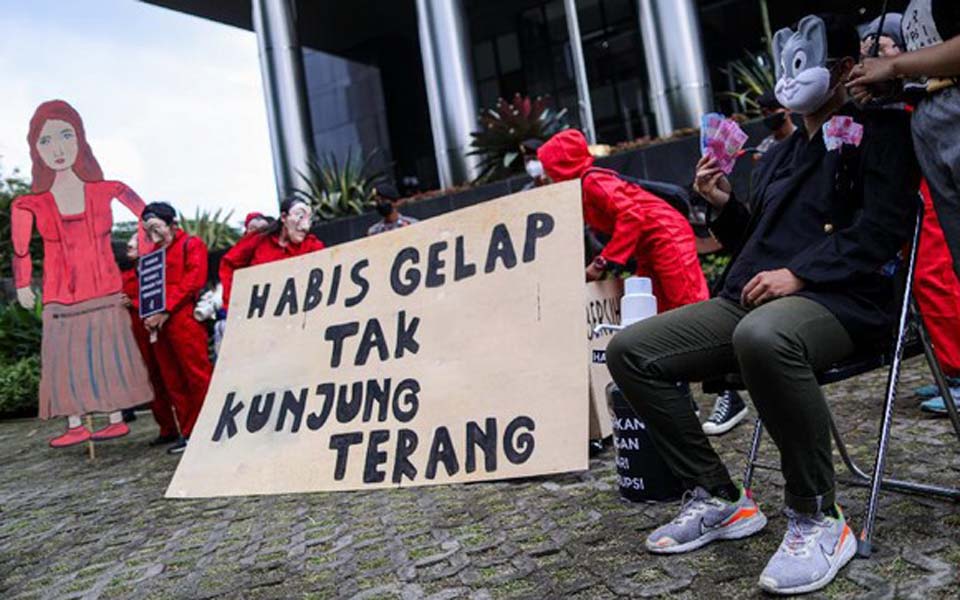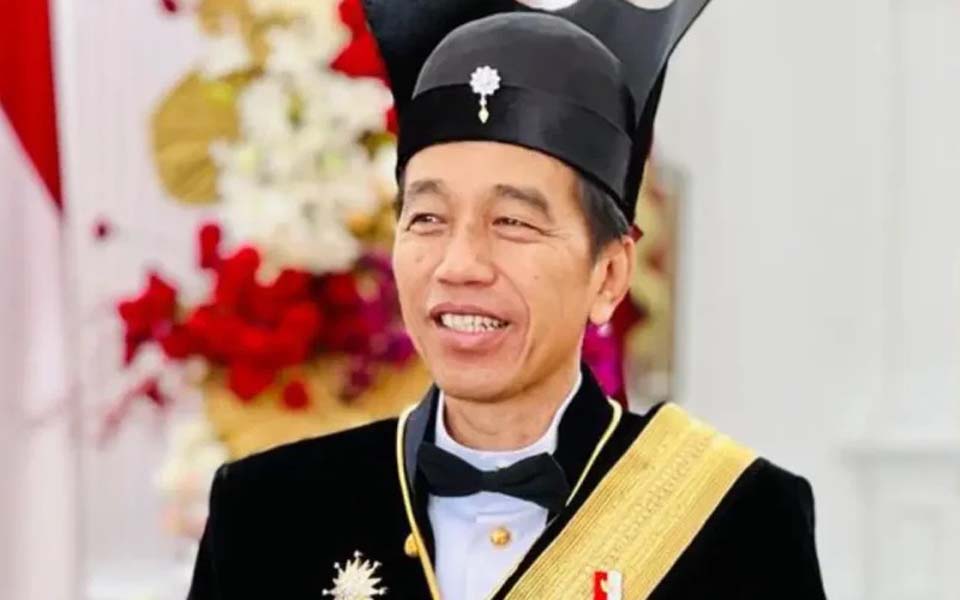Bilal Ramadhan, Jakarta – Indonesia Corruption Watch (ICW) has responded to Indonesia's latest Corruption Perception Index (CPI) score which was recently released by Transparency International Indonesia (TII). Indonesia's score in 2023 experienced a stagnation compared with previous years.
Indonesia obtained a CPI score of 34 and its ranking dropped from 110th to 115th position out 180 countries in 2023. In ICW's view, if looking back, Indonesia's CPI score is now the same as it was when President Joko "Jokowi" Widodo started his first term as president in 2014.
"This fact confirms that during the nine years of his administration Jokowi has made no meaningful contribution to the agenda of eradicating corruption, and even tended to bring significant setbacks", ICW said in a press statement on Tuesday January 30.
Therefore, ICW has mapped out a number of problems that were allegedly a factor in the weakening of Indonesians CPI.
First, ICW believes that President Widodo has been more preoccupied with "cawe-cawe" (meddling) in political matters rather than making legal improvement.
Yet Indonesia currently has a pile of outstanding legislation which is believed could support the agenda of eradicating corruption such as the Draft Law on Asset Seizures, the Draft Law on Restricting Cartel Money Transactions and revisions to the Anti-Corruption Law (UU Tipikor).
"Rather than this being worked on, the president instead delved into political nuances and forgot his political promise of strengthening corruption eradication", ICW said.
Second, ICW's assessment is that President Widodo relinquished responsibility for the very worrying situation in the Corruption Eradication Commission (KPK).
Article 3 of the revised KPK Law places the president as the administrative supervisor of the anti-graft institution. So the president should have taken action over the incidents that occurred in the KPK, especially regarding its poor institutional management.
"However, this was also not done. As a result, the KPK's performance declined, even the public's trust [in the KPK] has declined sharply of late", ICW said.
Third, ICW highlighted the legislative projects produced by President Widodo and the House of Representatives (DPR) which have succeeded in degrading the meaning of corruption which was classified as extraordinary crimes.
Examples of this are the Law on Correctional Instruction (UU PAS) and the revised Criminal Code (KUHP). This is because according to ICW the substance of the PAS Law loosen the rules for granting remission for corruption convicts.
"As a consequence, corruption convicts can finish serving their prison sentences more quickly, such as [former prosecutor] Pinangki Sirna Malasari, [former General Elections Commission commissioner] Wahyu Setiawan or [former Southeast Sulawesi governor] Nur Alam. Meanwhile under the [revised] KUHP prison sentences are actually even lighter than the UU Tipikor", ICW said.
[Translated by James Balowski. The original title of the article was "Indeks Persepsi Korupsi Indonesia Stagnan, ICW Sindir Presiden Jokowi".]






